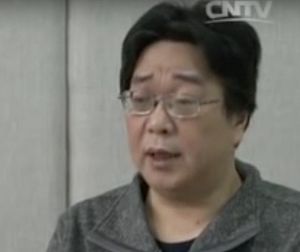On June 5, one day ahead of Sweden’s National Day, 37 Swedish newspapers jointly published an article urging China to release Swedish citizen Gui Minhai. As The Diplomat has been following, Gui was one of five Hong Kong booksellers who disappeared in 2015 and reappeared on the Chinese mainland under police custody. Months after being released in October 2017, he was dramatically seized by Chinese authorities again — right in front of two Swedish diplomats on a train — in late January 2018. So far, Gui has been detained for the second time for more than five months.
The article, signed by more than 40 prominent Swedish academics, editors, journalists, politicians, and actors, called on the Chinese authorities to “immediately release Gui Minhai.”
The article said:
China is a superpower that has vast economic, political and cultural influence on the world. Its leaders in Beijing have made it clear they are ready to play a leading and responsible role in the world. They often refer to their proud cultural history as an asset for China and the rest of the world. However, their actions against Gui Minhai are in sharp contrast to the leaders’ proud declarations.
The article also expressed support to the Swedish government, the European Union, and all the organizations and individuals that have been working on for Gui’s release.
In an interview with Radio Free Asia, dissident poet Bei Ling, an old friend of Gui, said the article showed that the Swedish press and public have been more active than the Swedish government in helping Gui.
To be fair, the Swedish government did take a strong stance when the incident occurred out in January. In a rare move, the Swedish Ministry for Foreign Affairsreleased two statements, on January 23 and on February 5, condemning China’s “brutal” behavior and demanding the immediate release of Gui.
As the Swedish government applied pressure over his case, Gui appeared again in a video interview on February 9. In the interview, Gui claimed that he had attempted to leave China for Sweden under the Swedish government’s “instigation.” In front of the camera, Gui also accused Sweden of manipulating him like a “chess piece.”
On February 12, after weeks of ambiguous replies, China’s foreign ministry spokesperson Geng Shuang finally made clear China’s hard stance on the case. He said:
During the interview, Gui Minhai’s attitude and will was unequivocal. With regard to the reaction of the Swedish side, I want to point out that as Gui Minhai violated Chinese law, his case must be dealt with in accordance with Chinese law. The Swedish side has repeatedly requested the Chinese side to release him, which grossly intervenes in China’s judicial sovereignty. The Chinese side has on many occasions lodged stern representations with the Swedish side on this.
Despite China’s harsh tone, the Swedish Ministry for Foreign Affairs on March 8 released another statement condemning China for denying Gui access to Swedish diplomatic and medical staff.
However, this statement has also been the Swedish government’s last public update on Gui’s circumstance. It seems that Stockholm has exhausted its political instruments for helping its own citizen when faced with China’s strong stance.
Against this backdrop, Bei urged the Swedish government to break its silence. “While failing to protect its citizen in China, the Swedish diplomats should at least reveal the details [about Gui’s rearrest in January], ” Bei told Radio Free Asia.
Bei’s suggestion is in line with advice from Jerome A. Cohen, a professor at NYU School of Law and a leading American expert on Chinese law and government.
In his personal blog, Cohen wrote on January 30 that “the Swedish Government should reveal the full story behind its frustrations in this case and in others involving China, and Swedish public opinion should demand that the Government tell the truth now. ”
Now the Swedish public opinion has finally decided to make its voice heard. Under this pressure, the Swedish government might soon have follow-up steps as well.

































